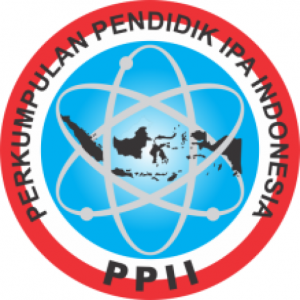Socio-Economic Study of Maize Farming Households in The Buffer Area of Mandalika Special Economic Zone Central Lombok Regency
Authors
Dudi Septiadi , Rosmilawati Rosmilawati , Abdullah Usman , Asri HidayatiDOI:
10.29303/jbt.v22i3.4474Published:
2022-09-30Issue:
Vol. 22 No. 3 (2022): July - SeptemberKeywords:
farmer, maize, mandalika, socio-economic, special economic zoneArticles
Downloads
How to Cite
Downloads
Metrics
Abstract
The Mandalika Special Economic Zone is one of the priority areas for national economic development that aims to create new sources of economic growth in the region. Maize is a type of food crop that has great potential share in the agricultural sector, especially as fulfillment food needs in the Mandalika Special Economic Zone. The objectives of this study were 1) to analyze the income from maize cultivation in the buffer zone of the Mandalika Special Economic Zone; 2) analyze the perceptions of households producing corn in the buffer zone about the socioeconomic benefits of the existence of the Mandalika Special Economic Zone. The method used in this research is the descriptive method. The respondents in this study were farmers who planted maize in Mertak Village and it was determined that there were 30 respondents who were determined by purposive sampling. The results showed that maize farmers in the buffer zone of Mandalika Special Economic Zone earn income in one growing season with an average income from maize cultivation of IDR 15,392,760/LLG or IDR 13,502,577/ha. Also, maize farmers in the buffer zone of the Mandalika Special Economic Zone benefit from the existence of the Mandalika Special Economic Zone in the form of increasing employment, improving public facilities like; the road infrastructure is of better quality, the physical condition of educational facilities and health facilities is also improving.
References
Aldila, H. F. (2013). Analisis Faktor-Faktor Yang Mempengaruhi Risiko Produksi Jagung Manis (Zea Mays Saccharata) di Desa Gunung Malang Kecamatan Tenjolaya Kabupaten Bogor. IPB.
Anggraeni, D. (2017). Analisis tingkat pendapatan usahatani jagung pipilan di Kabupaten Serang Provinsi Banten. Jurnal Agribisnis Terpadu, 10(1), 89-95. DOI: http://dx.doi.org/10.33512/jat.v10i1.5058
Anley, Y., Bogale, A., & Haile-Gabriel, A. (2007). Adoption decision and use intensity of soil and water conservation measures by smallholder subsistence farmers in Dedo District, Western Ethiopia. Land Degradation & Development, 18(3), 289–302. https://doi.org/10.1002/ldr.775
Antara News NTB. (2021). Lombok Tengah Jadi Percontohan Pengembangan Jagung Oleh Bank Dunia. 10 Desember 2021. https://mataram.antaranews.com/berita/179149/lombok-tengah-jadi-percontohan-pengembangan-jagung-dari-bank-dunia [diakses; 10 januari 2022].
Aqil, M., & Bunyamin, Z. (2015). Sistem Produksi Jagung di Provinsi Nusa Tenggara Barat. Prosiding Seminar Nasional Serealia 2015.
Ardiana IW, Widodo Y, Liman. (2015). Potensi Pakan Hasil Limbah Jagung di Desa Braja Harjosari Kecamatan Braja Selebah Kabupaten Lampung Timur. Jurnal Ilmiah Peternakan Terpadu 3(3):170-174. DOI: http://dx.doi.org/10.23960/jipt.v3i3.p%25p
Bantacut, T., Firdaus, Y. R., & Akbar, M. T. (2015). Pengembangan Jagung untuk Ketahanan Pangan, Industri dan Ekonomi Corn Development for Food Security, Industry and Economy. Jurnal Pangan, 24(2), 135-148. DOI: https://doi.org/10.33964/jp.v24i2.29
BPS. (2019). Data Sosial dan Kependudukan Indonesia. Retrieved from https://www.bps.go.id/subject/12/kependudukan.html
Creswell, J. (2002). Educational research: Planning, conducting, and evaluating quantitative (Fourth; Matthew Buchholtz, ed.). Boston, USA: Pearson.
Devadas, V., & Gupta, V. (2011). Planning for special economic zone: a regional
perspective. Institut of Town Planners, India Journal, 8(2), 53 - 58.
Haryati, H. (2018). Pengembangan Ekonomi Lokal yang Berorientasi Pada Penyerapan Tenaga Kerja Di Provinsi Jawa Timur. Ekuitas: Jurnal Ekonomi Dan Keuangan, Vol 14, Issue 2, Pp 245-269. DOI: https://doi.org/10.24034/j25485024.y2010.v14.i2.286
Herminingsih, H., & Rokhani. (2014). Pengaruh perubahan iklim terhadap perilaku petani tembakau di kabupaten jember. Jurnal Matematika, Saint, Teknologi, 15(1), 42–51. DOI: https://doi.org/10.35791/agrsosek.14.2.2018.20098
Kasri, R. A. (2011). Time series evidence on education and economic growth in Indonesia. Economic Journal of Emerging Markets, 3(2), 109–123. DOI: https://doi.org/10.20885/ejem.v3i2.2324
Khairunnisa, N. F., Saidah, Z., Hapsari, H., & Wulandari, E. (2021). Pengaruh Peran Penyuluh Pertanian terhadap Tingkat Produksi Usahatani Jagung. Jurnal Penyuluhan, 17(2), 113-125. DOI: https://doi.org/10.25015/17202133656
Maribeth, A. (2017). Analisis Efisiensi Ekonomi Usahatani Tumpang Sari Jagung Di Desa Dangdeur Kecamatan Banyuresmi Kabupaten Garut. [Skripsi]. IPB.
Masrun, M., Wahidin, W., Yuniarti, T., & Firmansyah, M. (2022). Peran Kawasan Ekonomi Khusus Mandalika Lombok Terhadap Pengembangan Ekonomi Lokal (PEL). Jurnal Sosial Ekonomi dan Humaniora, 8(1), 75-83. DOI: https://doi.org/10.29303/jseh.v8i1.17
Mulyaningsih, A., Hubeis, A. V. S., Sadono, D., & Susanto, D. (2018). Partisipasi petani pada usahatani padi, jagung, dan kedelai perspektif gender. Jurnal Penyuluhan, 14(1), 145-158.
Prawoto, N. (2012). Model pengembangan dan pemberdayaan masyarakat berbasis kemandirian untuk mewujudkan ketahanan ekonomi dan ketahanan pangan (Strategi pemberdayaan ekonomi pada masyarakat Dieng di Provinsi Jawa Tengah). Jurnal Organisasi dan Manajemen, 8(2), 121-134. DOI: https://doi.org/10.33830/jom.v8i2.276.2012
Rosadi, I. (2013). Analisis Keuntungan Dan Efisiensi Pemasaran Jagung Manis di Kecamatan Labuapi Kabupaten Lombok Barat. [Skripsi]: UNRAM]
Septiadi, D. (2016). Dampak Kebijakan Perberasan Terhadap Pengentasan Kemiskinan Di Indonesia. [Tesis]. Bogor: IPB.
Septiadi, D., & Mundiyah, A. I. (2021). Karakteristik dan Analisis Finansial Usahatani Tomat di Kabupaten Lombok Timur. AGROTEKSOS, 31(3), 194-202. DOI: https://doi.org/10.29303/agroteksos.v31i3.711
Septiadi, D., Rosmilawati, R., Usman, A., & Hidayati, A. (2021). Kelayakan Finansial Usaha Tani dan Persepsi Petani Terhadap Kebijakan Kenaikan Tarif Cukai Hasil Tembakau (Studi Kasus di Kecamatan Suralaga Kabupaten Lombok Timur ). Jurnal Agrotek Ummat, 8(2), 91–98. DOI: https://doi.org/10.31764/jau.v8i2.5231
Septiadi, D., Suparyana, P. K., & FR, A. (2020). Analisis pendapatan dan pengaruh penggunaan input produksi pada usahatani kedelai di kabupaten lombok tengah. JIA (Jurnal Ilmiah Agribisnis): Jurnal Agribisnis dan Ilmu Sosial Ekonomi Pertanian, 5(4), 141-149. DOI: http://dx.doi.org/10.37149/jia.v5i4.12305
SuaraNTB. (2012). 71 Persen Tenaga Kerja Lokal Dilibatkan Dalam Pengembangan Mandalika. Diakses di: https://www.suarantb.com/2022/05/28/71-persen-tenaga-kerja-lokal-dilibatkan-dalam-pengembangan-mandalika/
Suryade, L. (2021). Model Pengembangan Kawasan Ekonomi Khusus (KEK) Mandalika, Lombok: Analisis Sistem Sosial Ekologi. [Doctoral dissertation], IPB University.
Suryade, L., Fauzi, A., Achsani, N. A., & Anggraini, E. (2022). Variabel-Variabel Kunci dalam Pengembangan Kawasan Ekonomi Khusus Pariwisata (KEK) Berkelanjutan Di Mandalika, Lombok Tengah, Indonesia. Jurnal Kepariwisataan: Destinasi, Hospitalitas dan Perjalanan, 6(1), 16-30. DOI: https://doi.org/10.34013/jk.v6i1.327
Suryani, N. I., & Febriani, R. E. (2019). Kawasan Ekonomi Khusus dan Pembangunan Ekonomi Regional: Sebuah Studi Literatur. Convergence: The Journal of Economic Development, 1(2), 40-54. DOI: https://doi.org/10.33369/convergence-jep.v1i2.10902
Tjilen, A. P. (2019). Pemberdayaan Ekonomi Masyarakat Lokal dan Tanggung Jawab Sosial Perusahaan (Teori, Konsep, Dan Implementasi Kebijakan Publik). deepublish.
Wehantouw, A. D., Manginsela, E. P., & Moniaga, V. R. B. (2018). Faktor Beralihnya Tenaga Kerja Anak Petani Ke Sektor Non-Pertanian di Desa Treman Kecamatan Kauditan Kabupaten Minahasa Utara. AGRI-SOSIOEKONOMI, 14(2), 1. DOI: https://doi.org/10.35791/agrsosek.14.2.2018.20098
Zulkarnaen, Z., Sayuti, M., & Fajariah, F. (2022). Konsep Pengembangan Kawasan Ekonomi Khusus (KEK) Mandalika Berorientasi Kesejahteraan Masyarakat Lokal. Ganec Swara, 16(1), 1362-1369. DOI: https://doi.org/10.35327/gara.v16i1.274
License
Copyright (c) 2022 Dudi Septiadi, Rosmilawati Rosmilawati, Abdullah Usman, Asri Hidayati

This work is licensed under a Creative Commons Attribution 4.0 International License.

Jurnal Biologi Tropis is licensed under a Creative Commons Attribution 4.0 International License.
The copyright of the received article shall be assigned to the author as the owner of the paper. The intended copyright includes the right to publish the article in various forms (including reprints). The journal maintains the publishing rights to the published articles.
Authors are permitted to disseminate published articles by sharing the link/DOI of the article at the journal. Authors are allowed to use their articles for any legal purposes deemed necessary without written permission from the journal with an acknowledgment of initial publication to this journal.


























